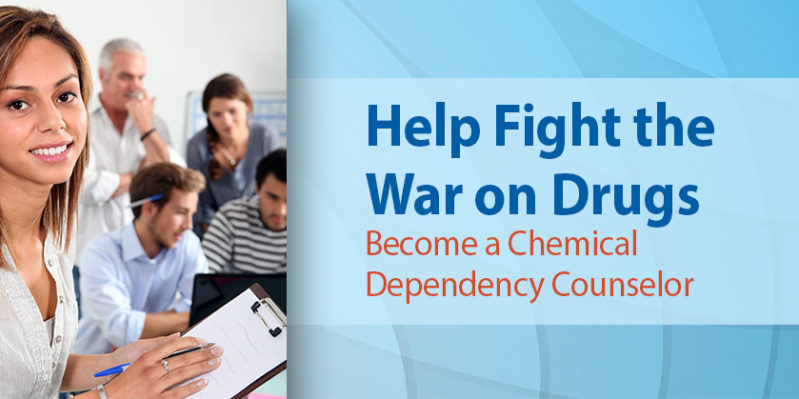
Become a Chemical Dependency Counselor.
Today, nearly one in 10 Americans has some type of alcohol or substance use disorder, a new federal government survey finds. But only a quarter of them get the treatment they need, researchers say. Though not everyone recognizes chemical dependency as a medical condition, it most definitely is a chronic, relapsing medical condition with devastating personal and social consequences. You probably know someone who has been affected by alcohol or other drugs, directly or indirectly, and you may want to help. If you do, the field of chemical dependency counseling may be right for you.
“Chemical dependency counselors help people who suffer from alcohol and substance use disorders to break the cycle of addiction and recover their lives,” says Kathleen Ayers-Lanzillotta, MPA, CASAC, Allied Health Sciences Academic Chair and Chemical Dependency Counseling Program Coordinator at Suffolk County Community College. “A well-trained chemical dependency counselor can effectively extend a lifeline to individuals and families struggling with addiction problems. Compassion drives our commitment to the field and we know that both treatment and prevention can work to save lives.”
Chemical dependency counselors work to build a rapport with their clients and understand the roots of their dependency and the ongoing triggers that inspire drug use. Once a therapeutic relationship is established, a counselor and client work through the interventions prescribed by the client’s treatment program, which varies depending upon the type of addiction and the nature of the problem. While working with a client, behavioral interventions may be staged, emotions are processed, talk therapy is provided, group sessions are attended or facilitated, and treatment sessions with family and friends are scheduled. The client-counselor relationship should be seen as highly collaborative, professional and intimate, with a great deal of intense and honest interaction.
Get Your Start at Suffolk
The Chemical Dependency Counseling (CDC) Program at Suffolk prepares students for employment or advancement in the field of chemical dependency counseling. Graduates will have fulfilled all the educational and internship requirements set forth by the New York State Office of Alcoholism and Substance Abuse Services (OASAS).
In addition to the CDC-specific courses, the associate degree curriculum includes a liberal arts base.
The program includes a semester of supervised internship in an OASAS-licensed treatment facility. Upon graduation, students are eligible to apply to OASAS to become Credentialed Alcoholism and Substance Abuse Counselor-Trainees (CASAC-T). At this point, they may begin working as a chemical dependency counselor even while continuing their academic studies toward a bachelor’s degree.
Graduates are also eligible to sit for the International Credentialing and Reciprocity Consortium (IC&RC) for the Credentialed Alcoholism and Substance Abuse Counselor examination and then need to complete only the supervised work experience requirements in an OASAS-approved program to be issued full Credentialed Alcoholism and Substance Abuse Counselor (CASAC) credentials. Suffolk also offers CDC courses for continuing education for those who have already attained associate, bachelor’s or master’s degrees. According to Professor Ayers-Lanzillotta, “An increasing number of students with associate, bachelor’s and master’s degrees are seeking to take CDC courses at Suffolk to become a CASAC and broaden their human service professional credentials.”
“My experience at Suffolk was extremely positive. I was supported and challenged by both my professors and fellow students,” says Adrienne Lamb, who received a certificate in chemical dependency counseling in May 2015 from Suffolk and is now a clinician at the Alcohol and Drug Council of Tompkins County in Ithaca, New York. “My classes provided me with a strong base of knowledge and my professors were extremely generous with their time, even reviewing my job application materials and résumé. I remain deeply grateful for my time at Suffolk, the solid and affordable education I received, and the relationships that began there and continue still.”
Relationships and a Rewarding Career
Recovery is a lifelong process; the chemical dependency must be overcome, and changes in lifestyle and patterns of thinking and interaction must be made. This means that counselors will create relationships with clients — seeing them for months or even years. They will offer them hope, recovery, empathy and belief in the possibility of ongoing self-improvement. It is rare to have a career that involves positively influencing the lives of others on a day-to-day basis — a chemical dependency counselor is one of those extraordinary careers.
For more about Suffolk’s Chemical Dependency Counseling Program, simply call 631-451-4111 or visit sunysuffolk.edu/Enroll.
– Mary M. Feder



